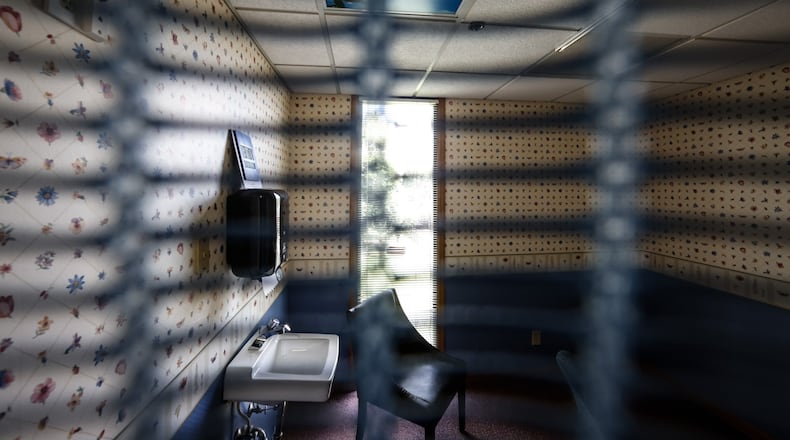At this point, the Kettering facility mainly offers screening and pre-operative services before sending women to the organization’s facility in Indianapolis for an abortion.
The Kettering facility has operated for 35 years and used to provide hundreds of abortions a month. But an Ohio law that went into effect this year outlawed an estimated 90% of the procedures they performed, the representative said.
That law prohibits most abortions after the detection of a fetal heartbeat — about six weeks into pregnancy, which is before many women know they are pregnant. That law went into effect after the U.S. Supreme Court overturned Roe v. Wade.
Indiana this month became the first state to approve new abortion restrictions since the Supreme Court ruling, banning almost all abortions. This will cause the Women’s Med Center in Indianapolis to close when that law goes into effect Sept. 15.
“Women’s Med has provided personalized, high-quality abortion care to Hoosiers for over 20 years,” said Dr. Martin Haskell, medical director at Women’s Med in the release announcing the lawsuit challenging the law.
“Unlike Indiana politicians, our physicians are dedicated to the welfare of our patients, meeting them where they are with compassion and respect. Without a court order, we will no longer be able to provide this essential care to our patients. That is simply unacceptable.”
If Indiana’s abortion facilities close, the closest place for most southwest Ohiowomen to get an abortion will be Illinois or Michigan, the representative from Women’s Med said, putting the procedure out of reach for many women.
“It’s going to be horrible because there’s no longer a choice. It puts women at risk,” the representative said. “Women in southwest Ohio are going to die.”
The representative from Women’s Med asked not to be named for security reasons.
In a statement Tuesday afternoon, Dayton Right to Life officials said they “look forward to the closure of this facility and an abortion-free Miami Valley.”
“In its history Dayton has had as many as three abortion facilities in operation at one time,” said Margie Christie, executive director of Dayton Right to Life. “The closure of this last facility would be a true testament to the many prayers and pro-life supporters who have walked and prayed outside this facility for decades.”
The Women’s Med Center representative said that since Ohio’s law went into effect, they had a patient who was a rape victim, and others who had medical issues necessitating an abortion. Ohio’s law doesn’t have an exception for rape victims, and the exemption for the health of the mother has been criticized as confusing.
The Women’s Med facility in Indianapolis saw cases double to roughly 500 a month after Ohio law changed, the representative said. They suspect that this will lead to a surge of cases in Michigan and Illinois that could cause women to have to wait to get an abortion, forcing more complicated and costly procedures.
Patients trickled in and out of the facility in Kettering Tuesday afternoon as anti-abortion protesters paced the sidewalk outside offering pamphlets to vehicles entering and exiting the parking lot. Inside, in the carpeted waiting room next to soft sofas and armchairs, coffee tables were topped with fliers urging people to “vote like our lives depend on it.”
One worker wore a shirt that said “Roe Roe Roe your vote.”
Dr. Jeanne Corwin, who works at the clinic, said the closure of Women’s Med would be “devastating” and cause “substandard medical care.”
She said those impacted the most will be disadvantaged women without the time or money to travel.
“We all know about the dramatic cases, and they are dramatic and they’re terrible and they’re real,” she said. “But what about the non-dramatic cases where not ending a pregnancy changes the trajectory of that entire person’s life in a negative direction and they can never get past that.”
Ohio Right to Life President Michael Gonidakis meanwhile greeted the news of the impending closure of Women’s Med as good news.
“An unimaginable number of babies have lost their lives there. No longer will the greater Dayton area be subjected to this great tragedy.” Gonidakis said. “There are countless life-affirming options for pregnant women to receive real health care, prenatal care, and various social services to ensure both her and her baby are healthy and safe. We know the Montgomery County pro-life and health care community stand ready to provide true care to each and every pregnant woman in need.”
The Associated Press contributed to this report
About the Author

